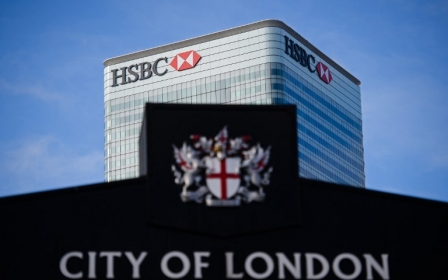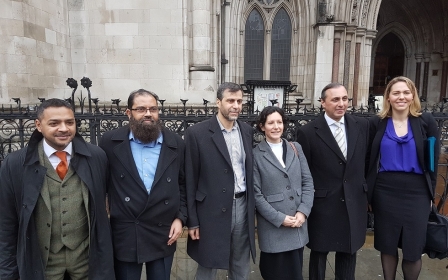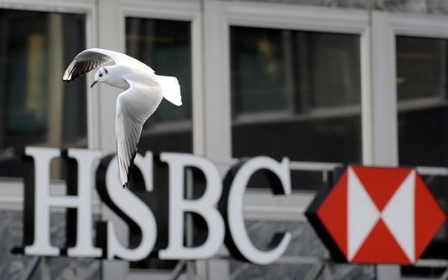Who checks World-Check? It’s high time someone did

An issue that has until now been veiled in secrecy (and non-disclosure agreements) but which has the potential to affect us all has finally blown into the open. On Wednesday, Thomson Reuters and its due diligence service provider World-Check issued a clarification to users of its service relating to Finsbury Park Mosque’s previous "terrorism" categorisation. It also made an apology to Finsbury Park Mosque and paid £10,000 damages.
When an organisation has this much influence over a critical issue central to the lives of individuals and the operations of businesses, why is it not monitored and assessed?
While this clarification and correction were welcomed by Finsbury Park Mosque, it is not alone in having had its bank account closed in recent years as a result of the diminished "risk appetite" of banks; nor is it alone in having been the subject of "red flagging" by a system such as World-Check, one of a number of similar private sector compliance screening tools.
Over recent years, the banking industry has come under increasing pressure to ensure that it is not facilitating financial transactions for money launderers, organised crime bosses and terrorist financiers. Regulations have tightened, fines and other penalties have mounted and the cost of doing business has risen for the banks.
READ MORE: Banks are unfairly targeting Muslims. Now ministers must end this injustice
As a result, banks have become increasingly risk averse, restricting their risk appetite for fear of dealing with illicit actors and looking for ways in which they can be certain they are aware of everything there is to know about their clients. Enter companies like Thomson Reuters World-Check.
Tapping into paranoia
They have very effectively tapped into the banks’ paranoia, providing services that facilitate the screening of account holders and transactions by scouring the world for information (often merely from media sources) that might indicate that a bank’s client presents a financial crime risk.
The extent to which World-Check is relied upon by financial institutions is immense; yet it appears from this case that its quality control does not match this responsibility, leading to disastrous consequences for Finsbury Park Mosque and, according to lawyers representing the mosque, many others who have suffered similar experiences.
The profile reports are compiled by "unqualified staff on the basis of open source data, in particular by means of Google searches"
It is clearly important that banks and other financial institutions are not abused for criminal or terrorist purposes. Keeping bad money out of a system that processes billions of pounds each day is highly challenging and so it is inevitable that banks will look for solutions to help them meet their important obligations.
But this case poses important questions that we can no longer ignore. When an organisation, such as World-Check, has this much influence over a critical issue that is central to the lives of individuals and the operations of businesses, why is it not itself monitored and assessed? Is it not surely time that the Financial Conduct Authority – or some other appropriate supervisory body – took an active interest in a tool that is so influential in the decision-making of banks yet operates without oversight?
According to the Particulars of Claim between Finsbury Park Mosque and World-Check owner Thomson Reuters, the information provided by World-Check to banks consists of "continually updated intelligence" providing an "early warning system for hidden risk". Yet, it is claimed, the profile reports are compiled by "unqualified staff on the basis of open source data, in particular by means of Google searches". Furthermore, "the profile reports are not subject to independent checks" and those that are the subject of these compiled profiles are not given an opportunity to check or correct these reports.
Indeed, as was the case for Finsbury Park Mosque, it is often not until the bank account closure notice arrives in the post that the subject of such a profile realises anything is wrong. Even then, strict non-disclosure agreements between World-Check and their client banks prohibit revealing the source of a bank’s risk appetite concerns.
Shine the light
While it would be wrong to suggest that all such bank account closures are the result of the adverse media screening provided by diligence companies such as World-Check, the mystery and secrecy that surrounds these companies has inevitably fuelled such suspicions.
It is time for governments and regulators to shine a light on this secretive yet fundamental area of the financial services industry
The apparent inability of those that fall victim to the profiling system to discover that they are in the database and seek explanation or redress (save going to court) is perverse. Unless you have a database subscription yourself (and some concerned companies do precisely that), the first indication that something is amiss arrives in the form of an account closure notice in the post.
It is time for change. Perhaps an interesting parallel can be found in credit reference agencies that likewise wield tremendous influence over consumers’ access to financial services. Under the terms of the Consumer Credit Act 1974, consumers have a statutory right to access a copy of their credit report.
Surely it is time for governments and regulators to shine a similar light on this secretive yet fundamental area of the financial services industry before more errors or "misunderstandings" created by "unqualified staff" lead to further financial misery.
- Tom Keatinge is director of the Centre for Financial Crime & Security Studies (CFCS) at The Royal United Services Institute (RUSI).
The views expressed in this article belong to the author and do not necessarily reflect the editorial policy of Middle East Eye.
Photo: The moon rises behind HSBC bank in London's Docklands on 13 November 2016 (AFP)
Middle East Eye propose une couverture et une analyse indépendantes et incomparables du Moyen-Orient, de l’Afrique du Nord et d’autres régions du monde. Pour en savoir plus sur la reprise de ce contenu et les frais qui s’appliquent, veuillez remplir ce formulaire [en anglais]. Pour en savoir plus sur MEE, cliquez ici [en anglais].





